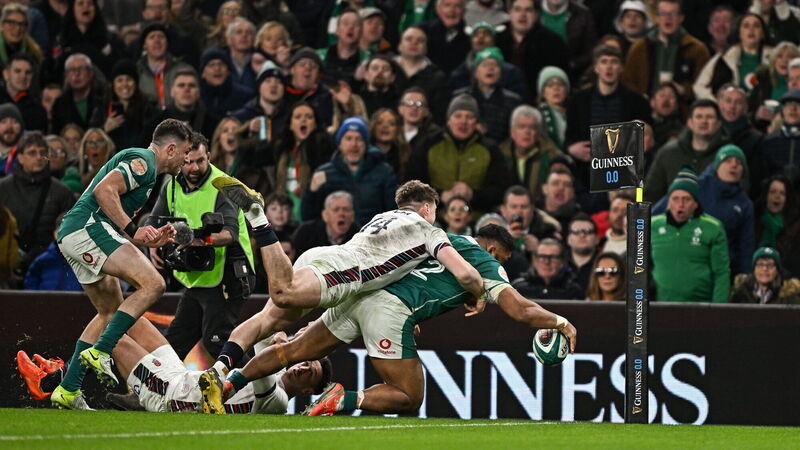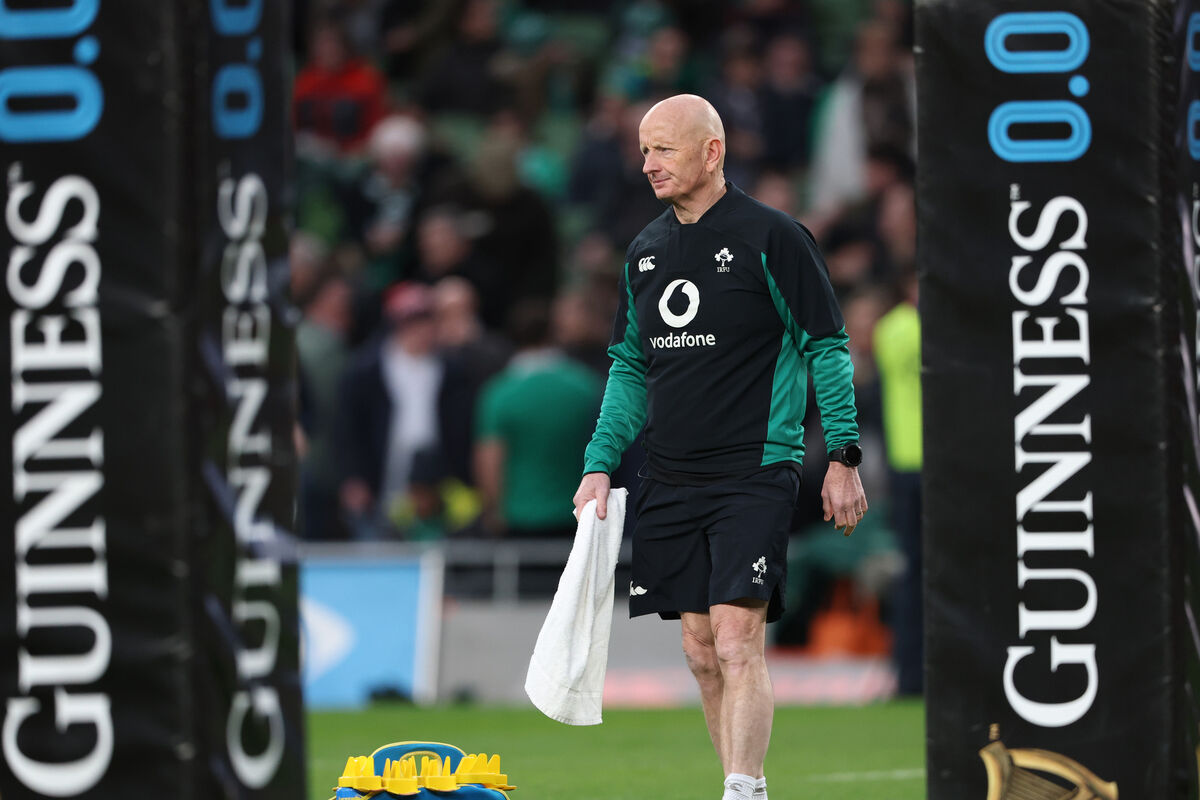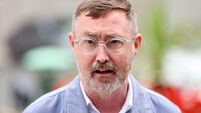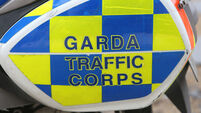Alcohol ads in Six Nations broadcasts spark fresh controversy

Alcohol Action Ireland said it watched 'with exasperation' the amount of highly visible alcohol ads on hoardings, which were shown during Ireland’s Six Nations clash with England. Photo: Sam Barnes/Sportsfile
Guinness branding visible inside the Aviva stadium during the broadcast of Ireland’s Six Nations clash with England exposed thousands of children to alcohol marketing and undermined the new watershed, according to Alcohol Action Ireland (AAI).
The advocacy group said it watched “with exasperation” the amount of highly visible alcohol ads on hoardings, which were shown during the match's broadcast on Virgin Media in the early evening.
RTÉ has broadcast similar during other rugby matches across the championship, according to AAI, and other similar breaches have accorded with Heineken hoarding ads shown during coverage of the Champions League.
Last month, a new broadcast watershed, brought in under the Public Health (Alcohol) Act 2018, came into operation meaning alcohol ads cannot be broadcast before 9pm.
AAI has also accused Diageo of continuing to use the "cynical tactic" of brand sharing by advertising zero alcohol products using the same branding as their full-strength alternatives as a way to circumvent the law banning alcohol brands on the field of play.

Research has found that alcohol brand references on the field of play occur at a rate of up to one every eight seconds during high-profile rugby matches, while data from the Broadcasting Authority of Ireland shows seven out of 10 of the top programmes watched by children are big sporting events.
Pairing a healthy activity, such as sport, with an unhealthy product, such as alcohol, makes that product seem less unhealthy and more acceptable and normal, according to Dr Sheila Gilheany, AAI chief executive.
“Alcohol sponsorship of sport is a way of building emotional connections with consumers and its power comes from associating the brand with an already engaging event or celebrity.
"It is a sophisticated influence on young people’s drinking behaviour and expectations, increasing the likelihood that they will start to use alcohol at an earlier age and to drink more if they are already using alcohol."
The AAI has repeated its calls for a complete ban on alcohol sponsorship of sport, similar to tobacco.
Dr Gilheany added:
"A ban on alcohol sponsorship of sports would help reduce alcohol-related harm, particularly among future generations, and have a hugely positive impact on the health, wellbeing and safety not just of young people but of the general population.”
The Programme for Government made a commitment to "tackle harmful alcohol consumption through effective regulations", she added.
"At the very least there must be enforcement of current regulations but in reality there is a need for a complete rethink of government policy in relation to alcohol which puts the protection of children ahead of the profits of global alcohol producers."
A spokeswoman for Diageo said it is fully committed to supporting the reduction of harmful alcohol consumption. "All our advertising fully complies with Irish legislation. Greater visibility and availability of non-alcoholic products only serves to support growing consumer demand for moderation and choice. The availability of non-alcoholic products does not increase the demand for alcoholic products, any suggestion to the contrary contradicts clear market trends and evidence.”
Heineken was contacted for comment.





